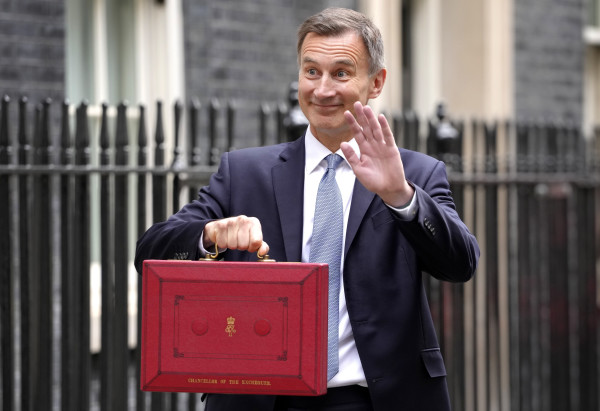Chancellor Jeremy Hunt has increased the pensions annual allowance from £40,000 to £60,000 as part of his ‘back to work’ Budget.
Hunt said by increasing the allowance it would encourage people to stay in work longer.
The annual allowance limits the total amount a person can contribute to a pension in one year without paying a tax charge.
This covers personal contributions, employer contributions and tax relief. It is currently set at £40,000 a year.
If a person breaches their annual allowance, they will face an annual allowance charge designed to remove the upfront tax relief their contribution would have received. That means a basic-rate taxpayer would pay a 20 per cent charge, a higher-rate taxpayer 40 per cent and an additional-rate taxpayer 45 per cent.
How have the lifetime allowance, annual allowance and money purchase annual allowance changed since 2010?
| Year | Lifetime allowance | Annual allowance | Money purchase annual allowance |
| 2010/11 | £1,800,000 | £255,000 | |
| 2011/12 | £1,800,000 | £50,000 | |
| 2012/13 | £1,500,000 | £50,000 | |
| 2013/14 | £1,500,000 | £50,000 | |
| 2014/15 | £1,250,000 | £40,000 | |
| 2015/16 | £1,250,000 | £40,000 | £10,000 |
| 2016/17 | £1,000,000 | £40,000 | £10,000 |
| 2017/18 | £1,000,000 | £40,000 | £4,000 |
| 2018/19 | £1,030,000 | £40,000 | £4,000 |
| 2019/20 | £1,055,000 | £40,000 | £4,000 |
| 2020/21 | £1,073,100 | £40,000 | £4,000 |
| 2021/22 | £1,073,100 | £40,000 | £4,000 |
| 2022/23 | £1,073,100 | £40,000 | £4,000 |
Source: AJ Bell/HMRC
Carl Emmerson, deputy director at the Institute for Fiscal Studies, said: "The annual allowance hits those who want to make large but infrequent pension contributions and can provide terrible incentives for high earners that have inflexible defined benefit arrangements.
"Both [the annual allowance and lifetime allowance] have been cut dramatically since 2010, raising the exchequer an estimated £8bn a year in additional revenue.
"Increasing them will reduce the damage they do, but even better would be a more thorough reform of how pensions are taxed. High earners with big pension pots do benefit from inappropriately generous tax treatment of pensions, but there are much better ways of restricting this that these crude limits."
The annual allowance was once as high as £255,000 but this was back in 2010/11.
It then fell to £50,000 in 2011/12 before reaching its current level of £40,000 in 2014/15 where it has remained since.
amy.austin@ft.com

